OCZ Reaper PC3-14400 6GB Memory Kit Review
OCZ Reaper PC3-14400 6GB Memory Kit
OCZ's Reaper modules may be grim by name but are they grim by nature? Leo investigates.
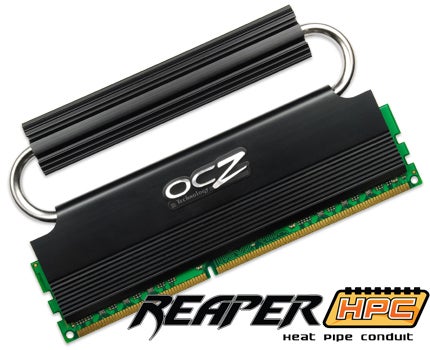
Verdict
Key Specifications
- Review Price: £231.50
It’s tricky to pigeonhole the OCZ Reaper PC3-14400 6GB Triple Channel memory kit that we’re reviewing this week as OCZ has such an enormous range of products. If we forget about DDR, DDR2, USB keys, laptop memory and mainstream DDR3 then we see that OCZ has no less than six distinct families of triple channel memory kits.
Blade sits at the top of the overclocking pile with the water cooled Flex EX just beneath. Intel Extreme use Extended Memory Profile (XMP) to make overclocking easier while the Platinum and Gold series look very similar to each other apart from the colour of the perforated heat shields on the memory chips.
Reaper stands out visually thanks to its HPC or Heat Pipe Conduit feature. This is a questionable name for a nifty feature that allows OCZ to install a heatsink above the memory module. The two halves of the cooling package that fix on either side of the Reaper module clamp around a heatpipe that loops up to a small heatsink that sits in the airflow from the CPU cooler. The heatpipe physically separates the heatsink from the main body of the memory module so air can pass around the heatsink on all sides to maximise the cooling effect.
Within the Reaper family there are four different speeds of memory; PC3-16000/2,000MHz, two versions of PC3-15000/1,866MHz with CL8 or CL9 latencies and the slowest of the bunch is PC3-14400/1,800MHz, which is the model we were sent to review.
As the name suggests a triple channel memory kit contains three modules instead of the usual two as they are aimed at the Core i7 market. Most of the triple channel Reaper kits have a capacity of 6GB (3x2GB) although the PC3-15000 CL9 comes in both 6GB and
3GB (3x1GB) versions. 3GB kits are aimed at anyone with a 32-bit Operating System i.e. most of us while 6GB of memory only makes sense if you have a 64-bit Operating System.
We tested the 6GB Reaper PC3-14400 kit on the EVGA X58 SLI that we reviewed last week.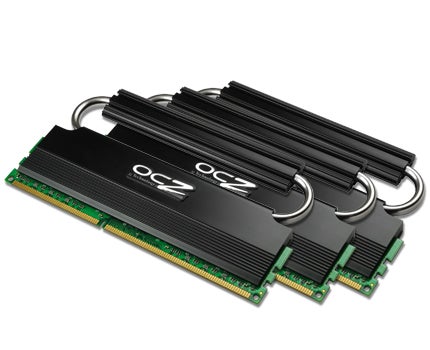
With two GeForce GTX 280 graphics cards installed in SLI the graphics memory ate into the 4GB of memory that 32-bit Windows can address to such an extent that there was only 2.5GB available for use. Switching to 64-bit Vista unlocked the whole 6GB.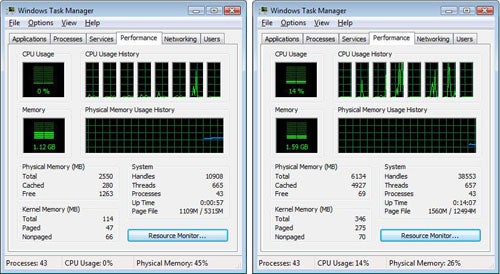
(centre)”’32-Bit Windows (left) only recognises 2.5GB of the installed memory whereas 64-bit (right) sees the full 6GB.”’(/centre)
In truth the EVGA motherboard wasn’t our first choice of test platform as we wanted to give the Intel DX58SO a second look. Intel has updated the BIOS of the DX58SO to add SLI support which means that almost every Core i7 motherboard on the market now supports CrossFire and SLI and we fancied slipping some benchmarks into this review. After all ‘DX58SO supports SLI’ is a news item and hardly the basis for a short review.
It’s a good thing that we gave the DX58SO a try as we ran into a problem. The Intel motherboard is unusual as the memory slots run across the top of the board instead of down the side and this places the memory very close to the CPU heatsink. Our preferred Core i7 cooler is a Noctua NH-C12P which lays horizontally instead of standing vertically. Unfortunately the HPC cooler means that the Reaper module stands 70mm tall compared to regular memory which is a mere 30mm tall. Unfortunately the lower face of the Noctua will only clear memory that is 45mm tall and that meant our choice of the DX58SO, OCZ Reaper and Noctua cooler were incompatible with each other. Switching to the EVGA cleared up the problem and meant we could get on with testing.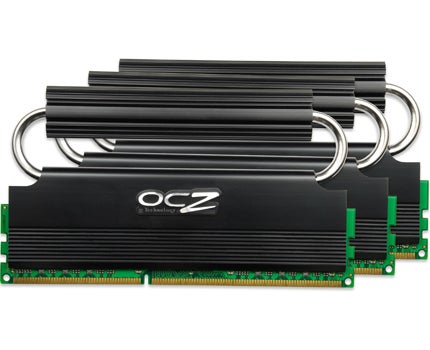
We used the 3x1GB PC3-8500/1,066MHz Qimonda memory that we use for most of our Core i7/X58 testing as a comparison. This was on 32-bit Vista and we found that the memory would run at 1,066MHz and would also overclock to 1,333MHz and 1,600MHz. When we overclocked the base clock speed slightly from 133MHz to 140MHz this raised the memory speed to 1,680MHz which says something about the EVGA as we haven’t seen that sort of speed from this Qimonda memory on any other motherboard.
Switching to the OCZ Reaper at 1,333MHz and 1,600MHz raised performance slightly in a straight comparison with the Qimonda which came as a surprise as the SPD memory timings were identical. At 1,600MHz the OCZ had timings of 11-11-11-24 when it is rated for 8-8-8-26 at 1.65V. The BIOS of the EVGA X58 SLI allows you to change memory timing quite precisely but we were unable to change the figures at all without locking the board solid. In essence this meant we had to select a clock speed for the memory and accept the SPD figures that were associated with that speed. We were unable to take the clock speed past 1,600MHz as the next speed setting in the BIOS is 1,866MHz and this 1,800MHz memory refused to go that fast. When you consider that OCZ lists two models of Reaper PC3-15000/1,866MHz memory it seems that this PC3-1440/1,800MHz memory has been speed binned quite precisely.
The other side of the Reaper coin is the cooling package. It works very well and keeps the memory absolutely cool to the touch but this is true of all of the Core i7 DDR3 memory that we have seen to date. The default voltage for Core i7 memory is a tiny 1.5V and this OCZ Reaper only requires 1.65V which is very low compared to the 1.8V and 1.9V that was quite common with Core 2 motherboards that used fast DDR3.
Then there’s the clock speed of Core i7 memory. We’re never going to complain about extra clock speed but it seems that Core i7 doesn’t benefit from memory that runs much above 1,066MHz, presumably thanks to the colossal bandwidth of the integrated memory controller. 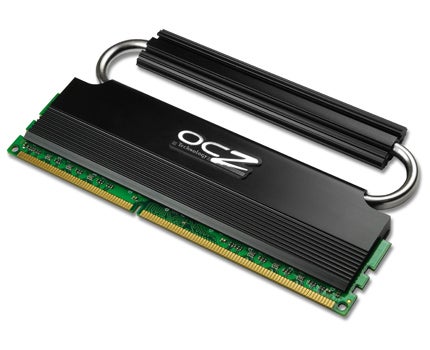
Finally there’s the business of the 6GB kit which makes it necessary to run a 64-bit Operating System. When we switched from 32-bit Vista to 64-bit we had to drop the speed of our overclocked 3.2GHz Core i7 965 Extreme from 3.85GHz to 3.72GHz by reducing the base clock multiplier from 29x to 28x.
Take all those points together and you’ve got memory that delivers pretty much exactly what it promises at a fairly reasonable price yet it is hard to see quite who might benefit from this particular upgrade.
”’Verdict”’
OCZ Reaper triple channel memory looks absolutely superb but the funky cooling system is quite unnecessary and the extra clock speed doesn’t deliver any obvious benefit.
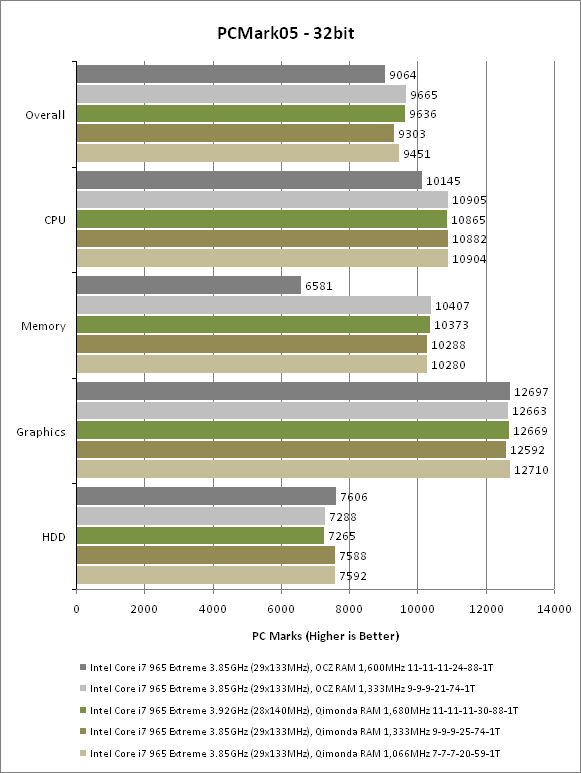
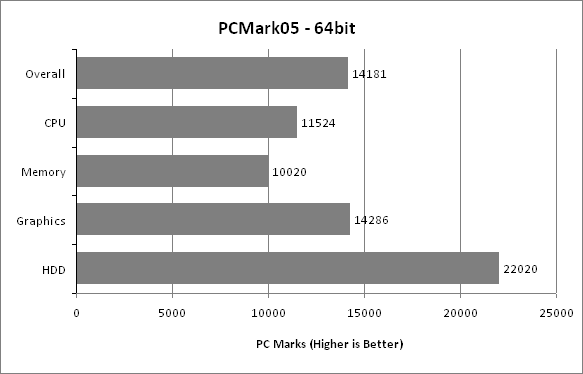

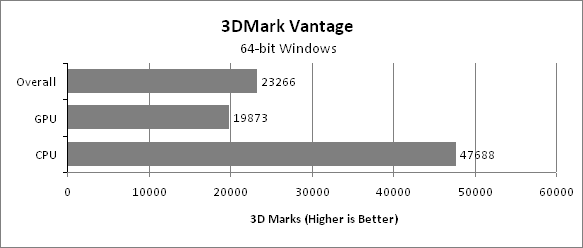
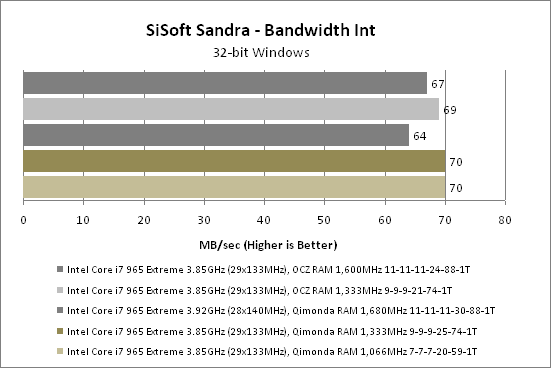
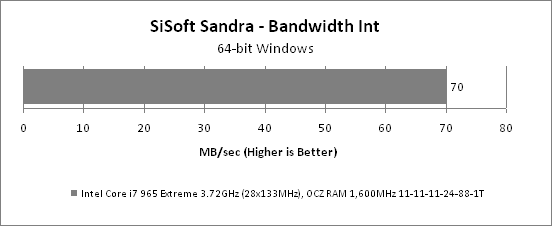
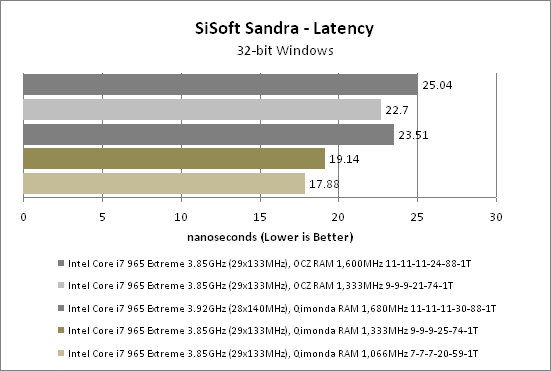
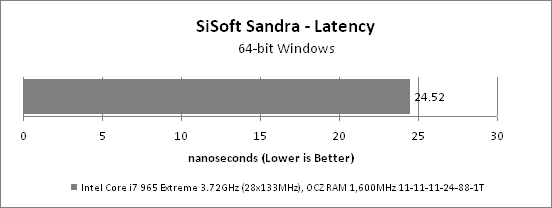
Trusted Score
Score in detail
-
Value 6
-
Performance 8

